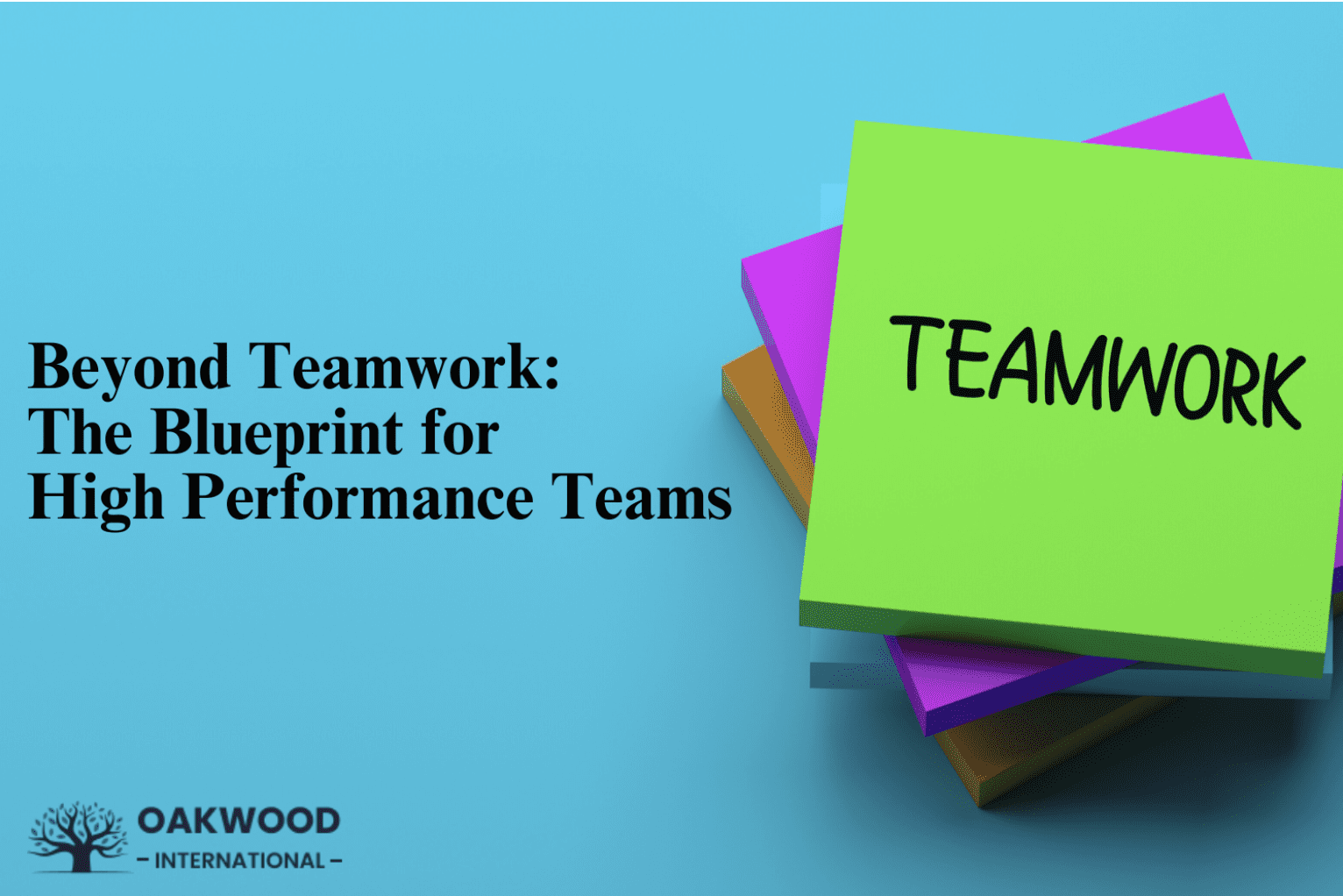
The phrase “teamwork makes the dream work” only tells part of the story. Simply working together isn’t enough in today’s business world. Companies need teams that go beyond collaboration, evolving into innovative forces that drive high performance and real results. But how do you transform individuals into a truly exceptional team? Strong leadership is the key. Professionals develop these skills through Leadership Courses, learning how to inspire and guide their teams toward effectiveness.
Understanding How to Build a High Performing Team requires more than just hiring top talent. It involves fostering trust, clear communication, and a shared vision—the essential ingredients for creating dynamic, high-achieving teams. This blog explores the key elements that turn ordinary groups into powerful, high performing teams. Let’s dive in!
Clarity of Purpose: The Foundation of Success
The foundation of outstanding teams exists in a clearly defined purpose. People who lack a common purpose, even with strong skills, tend to become disoriented. Every organisation with a well-defined objective function as a directional tool to maintain team unity between teams from startups that need fast expansion to corporate units looking for innovations.
As a leader, you should continuously communicate your team’s objectives. Ask yourself:
- Does everyone understand our mission?
- Are individual roles clearly defined?
- Is there a sense of purpose driving each task?
Encouraging open discussions about team goals fosters alignment and boosts motivation. When people see how their contributions fit the bigger picture, they feel more engaged and driven to succeed.
Trust: The Glue That Holds Teams Together
Trust functions as an absolute necessity in all organisations. Teams that lack clear communication face problems that result in employee misfits, unaccountable misbehaviour, and workplace disagreements. Member safety exists through mutual trust between high performance teams that lets people express opinions, challenge ideas, and take professional risks without fear.
So, how can you build trust within your team?
- Lead by example – Show vulnerability, admit mistakes, and encourage transparency.
- Encourage open feedback – Create an environment where team members feel heard.
- Foster inclusivity – Make sure every voice is valued, regardless of role or experience.
When trust is established, teams become more resilient, adaptable, and innovative—crucial for long-term success.
Communication: The Lifeline of Team Performance
Trying to finish a project under these circumstances would prove extremely challenging because no one understands what you are doing. Sounds chaotic, right? Any team which strives for excellence depends directly on strong communication capabilities for its operability. The system delivers clarity while stopping confusion, which allows for project advancement.
Great communication is not just about talking but it is also about listening and responding effectively. Encourage these habits within your team:
- Regular check-ins – Short daily or weekly meetings keep everyone on the same page.
- Active listening – Encourage team members to hear and process what others say.
- Clear expectations – Ensure that instructions, deadlines, and objectives are always unambiguous.
By prioritising communication, you eliminate confusion and create a more efficient, harmonious work environment.
Accountability: A Culture of Ownership
Performance-based teams function independently of constant supervision. Members of such teams accept personal responsibilities and enforce accountability among their team members. A team environment with embedded accountability causes members to celebrate their work outcomes combined with strong personal responsibility for success.
To build accountability, leaders should:
- Set clear expectations from the start.
- Encourage self-management rather than strict oversight.
- Recognise and reward both individual and team contributions.
When team members know they are responsible for their tasks and decisions, they become more proactive, reliable, and motivated to achieve excellence.
Continuous Learning: The Key to Long-Term Success
High performing teams’ whatever level of success they achieve, must continue their growth trajectory. The corporate culture incorporates learning along with adaptability as core values. The rapid nature of evolving industries demands teams to develop their skills persistently while adopting new directions as required.
Combining Leadership Courses with professional training drives continuous team growth. Investing in learning enhances skills, boosts confidence, and sharpens problem-solving abilities. Encourage:
- Workshops and mentorship programmes
- Cross-functional training to develop diverse skill sets
- A culture of feedback and self-improvement
A team that continuously learns is a team that continuously excels.
Collaboration vs Competition: Striking the Right Balance
Motivation finds its source in competition, yet excessive workplace competition transforms into damaging environments. Teams that perform at high levels maintain harmonious relationships between teamworking and productive rivalries. Team members show mutual backing through teamwork, simultaneously stimulating each member to advance their capabilities.
Foster a culture where:
- Success is shared, not individualised.
- Team members celebrate each other’s achievements rather than viewing them as threats.
- Problem-solving is done collaboratively, leveraging diverse perspectives.
Focusing on collective success creates an environment where everyone feels valued and driven to contribute their best.
Conclusion
Constructing high performance teams demands substantial time, effective leadership, and three key components: trust through clear communication and lasting relationships. Using these principles enables people to surpass teamwork abilities and reach authentic excellence.
Oakwood International provides expert-led courses that teach the proper leadership methods for leaders who wish to advance their teams and abilities. Professionally developed employees gain both immediate development and long-term organisational achievement through their enhanced capabilities.








